[Estimated read time: 10 minutes]
Homeownership comes with a sense of pride and accomplishment while also providing stability for many across the world.
Here in the United States, homeownership is a huge part of the "American Dream". Signifying opportunity. Through hard work, anyone can achieve success and prosperity.
This continues to remain a huge goal and aspiration for people worldwide. Our most recent research discovered notable home ownership rates across some of the largest countries around the world.
Key Takeaway
- Romania has the highest global homeownership rate, largely due to historical factors and housing affordability.
- Homeownership is culturally significant in many countries, symbolizing stability, wealth, and success.
- Despite high ownership rates in some countries, issues like affordability, housing quality, and economic instability present challenges for potential homeowners.
Which Countries have the Highest Homeownership rates?
Add infographic to your article or website (copy code below):
Romania - 96%
Romania tops the list with the highest homeownership rate globally, with over 96% of households owning their home. This results from a mix of tradition, great opportunities, and housing affordability.
In 1990, following the communist era, 70% of apartment blocks were state owned. When the government sold these properties, many Romanians quickly purchased their homes, often at a favorable price. Despite the highest homeownership rate globally, reports show that a third of these homes may be in disrepair.
China - 90%
Homeownership in China is among the highest in the world, with rates exceeding 90%. Whether it be a high-rise apartment or a Siheyuan, homeownership in China signifies stability and wealth.
The housing boom since the late 90s has also introduced a large number of real estate investors. As a result, with soaring prices, especially in cities, affordability is becoming an issue for many. Despite these challenges, homeownership remains a key aspiration for residents within China.
Vietnam - 90%
Homeownership in Vietnam is seen as a status symbol and an important goal, particularly for those reaching retirement age. The government also supports home ownership through affordable housing programs and relaxed restrictions for some.
However, like many other countries, the rapid growth over the years and increase in prices have created challenges with affordability and quality of housing. Despite this, homeownership still remains a significant goal, from owning a tube house in the city to owning a stilt home in the countryside.
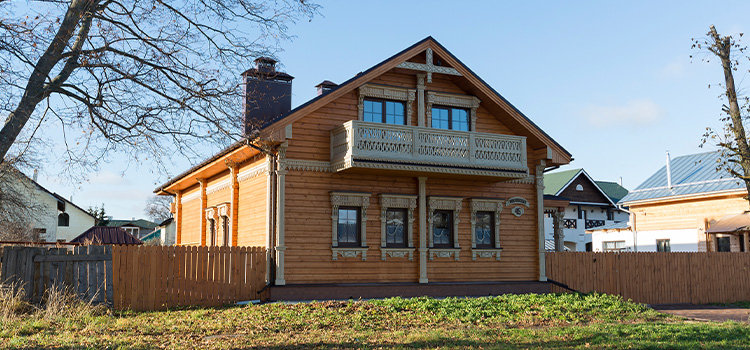
Russia - 87%
As mentioned previously, homeownership symbolizes stability and a solid investment. This holds true in Russia as well. However, some reports show there may be a quality gap between urban and rural homes, and affordability is an issue in big cities like Moscow. One of the most popular styles of housing in Russia is a Khrushchyovka, which is a Soviet-era apartment block. Another common style dwelling is a 'country house' or cottage, also known as a wooden dacha.
Sudan - 87%
Many people live in modest homes they built themselves in Sudan, whether it concrete and brick houses or 'mud houses' in more rural areas. The percentage of ownership in the cities is a little lower with only 67% owning their place. Due to limited data, exact homeownership rates are unclear, but many in Sudan prioritize owning their own home and see owning it as a protection against economic instability.
Poland - 86.8%
In Poland, there is a large percentage of people who live in communist-era apartment blocks, known as Bloczki. With one of the highest homeownership rates in the world. Recently, there has alos been a growing interest in the rental market, especially among younger generations and in larger cities.
Owning a home isn't just about the bricks and mortar—it's a symbol of financial stability and self-reliance. While the housing market in some areas has witnessed escalating prices, making housing affordability difficult, it still hasn't dampened the Polish enthusiasm for homeownership.
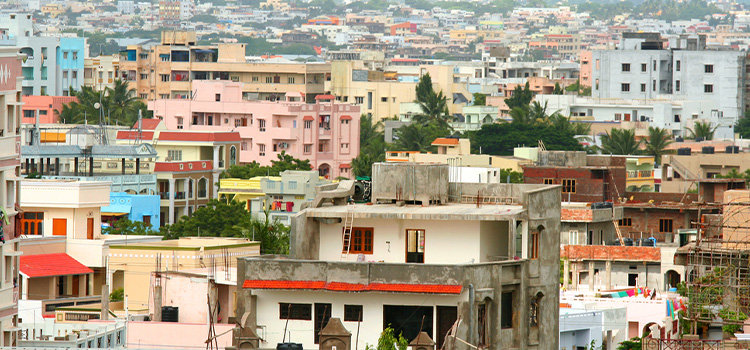
India - 86.6%
As of the 2011 census, India's homeownership was just under 87%. More recent numbers have been delayed because the decennial census was postponed. India positively promotes homeownership through affordable housing programs that benefit low to middle-income brackets. Unfortunately, rapid population growth has resulted in housing shortages across certain cities and has also caused overly congested towns. Regardless, for many in India, a home represents more than just four walls—it's economic security, societal prestige, and a haven.
Pakistan - 86.6%
In Pakistan, owning a home is a big deal, and the most recent homeownership rate proves that. Owning your own property symbolizes wealth, family pride, and stability. While life has changed housing needs in some urban areas, many still want to build their own home that reflects their culture.
However, due to money issues and land problems, not everyone can achieve this dream. Still, most Pakistanis hope to one-day own property.
Japan - 80%
Japan's homeownership rate is right at 80%. Historically, owning a home symbolized stability and prosperity. In the past, a house meant stability and wealth. But now, with big cities getting too crowded, high property prices, and an older population, things are changing. The Japanese government offers perks to encourage buying homes.
Also, because of natural disasters, strong, new homes are in demand. While some young people prefer to rent, most still dream of owning a home due to cultural values and financial goals.
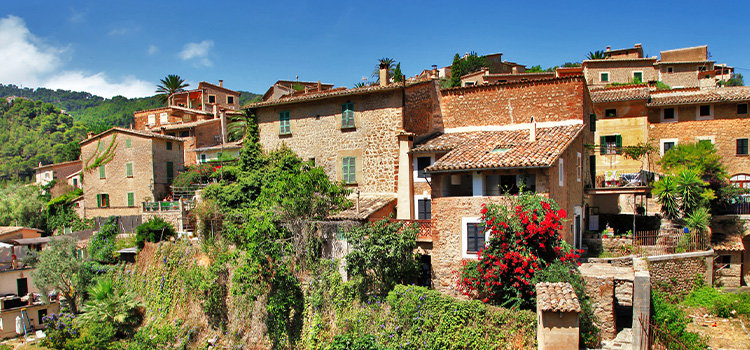
Spain - 75.8%
In Spain, owning a home has traditionally been a mark of success and stability. However, the 2008 financial crisis made it tough for many, especially the younger generation. In the past, the government tried to help by lowering interest rates, but buying a home can still be a challenge.
Despite these challenges, the desire to own a home remains strong, as it is often seen as a milestone in becoming an adult and gaining independence. The cultural value of home ownership continues to influence the Spanish mindset.
Algeria - 74.8%
In Algeria, nearly 75% of people own their own homes, proving how important it is culturally. However, with some cities growing at such a rapid pace, there has become a shortage of homes, making it difficult for some to become a homeowner.
The government has attempted to help by offering affordable housing, but not everyone can access these opportunities for multiple reasons. Still, Algerians strongly value owning a home for tradition and financial security.
Italy - 73.7%
Almost 74% of Italians own their homes, showing the importance of property ownership in their culture. While low interest rates and government assistance support this, first time home buyers are finding it harder to purchase due to economic instability and job issues.
Many older houses may have deferred maintenance or need updates to be more energy efficient. Still, owning a home is a major goal in Italy, representing stability and family tradition.
Brazil - 73.6%
About 74% of Brazilians own homes, but there's are large disparities in housing, with many living in informal areas called "favelas". The economy and changing loan rates affect how easy it is to buy a home. The government has a program ititled "Minha Casa, Minha Vida", to help more people own homes. Despite challenges, many in Brazil see a home as a sign of stability and moving up in life.
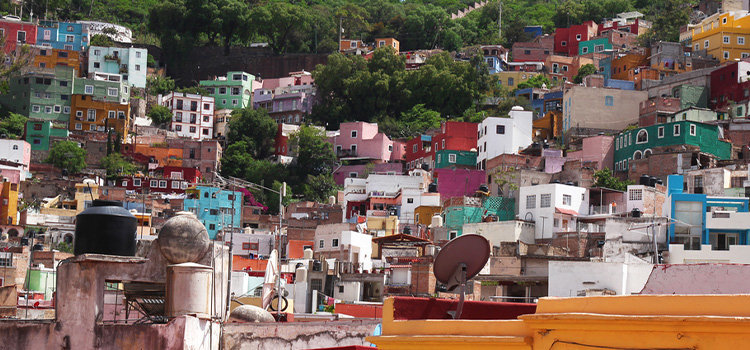
Mexico - 73.6%
About 73% of people in Mexico own homes, showing how much they value property as a sign of stability and respect. There's an organization called INFONAVIT that helps people buy homes, but there are still challenges. Some houses lack basic things, especially in less formal areas. City properties are also getting more expensive, but for many Mexicans, owning a home is still a large goal and a sign of success for families.
Argentina - 68.9%
While there's a strong demand for housing, affordability and access to mortgages remain a barrier in Argentina. The government is trying to help more people get homes with initiatives aiming to support development and accessibility. Despite economic instability, homeownership continues to be an aspiration for many Argentinians, symbolizing a sense of security and longterm investment.
Egypt - 67%
Egyptians view owning a home as a big deal, showing both stability and even financial status. Even though the government tries to help with affordable housing for those who may be in a lower income bracket, there are still challenges. Rapid growth and an increase in people needing housing in cities has created several obstacles to achieving homeownership goals. Despite the hurdles, for many Egyptians, having a home is a key goal, symbolizing a good financial footing and respect in society.
Canada - 66.5%
In Canada, almost 67% of people own their homes. Canadians love the idea of having their own property. Low interest rates and a good economy certainly help this trend. But, home prices within metropolitan areas are peaking, making it hard for first time homebuyers people to purchase. The government is stepping in with rules and extra fees to help control prices. Through all this, Canadians still see owning a home as a big success and a sign of financial stability.
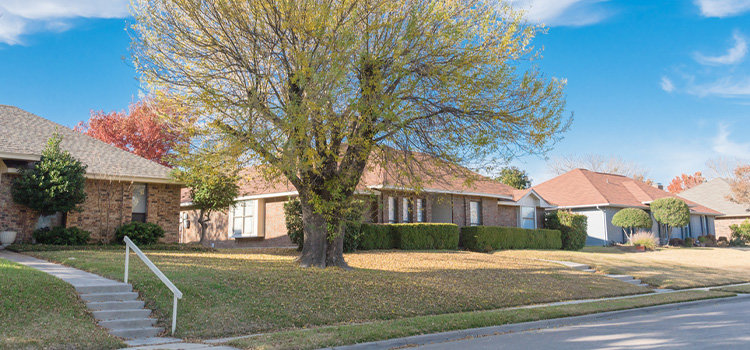
United States - 66%
Although a critical aspect of accomplishing the "American Dream," only two-thirds of houses in the United States are owned. Since the 1960s, the homeownership rate has consistently been between 61% and 65%. Looking at this with a global perspective, this is still an impressive and consistent rate. This shows how important homeownership is in the U.S.
Today buyers face an extremely competitive market because of low inventory, record high home prices, and the recent rise of interest rates. However, many Americans continue to see owning a home as a main goal and a sign of success and achievement.
France - 65%
Homeownership in France is seen as a mark of success and gives people a sense of security. Owning a home is often more favored than renting because it is a long-term investment. The French value property because it represents stability and is something to pass down to future generations.
The government even offers help to make buying homes easier. So, for the French, a home is both a valuable asset and a way to cement a family legacy.
United Kingdom - 63.9%
In the UK, 63.9% of people own their homes. This shows how important owning property is to the British culture and smart money planning. The government has programs like "Help to Buy" to help first-time buyers. Still, rising housing prices and money uncertainties have made things more difficult.
More young people are starting to rent, showing changes in what they can afford and how they want to live. Still, for many in the UK, having a home is a sign of stability, a good investment, and growing up.
Iran - 60%
In Iran, owning a home is the norm and is a big part of their culture and displays stability and success. Recently, economic sanctions and money issues within the country have made it hard for many people, especially younger ones, to buy a home.
The government has tried to help by offering affordable housing, but high costs and inflation are still big issues. Still, for many Iranians, having their own home is a big goal and a sign of success.
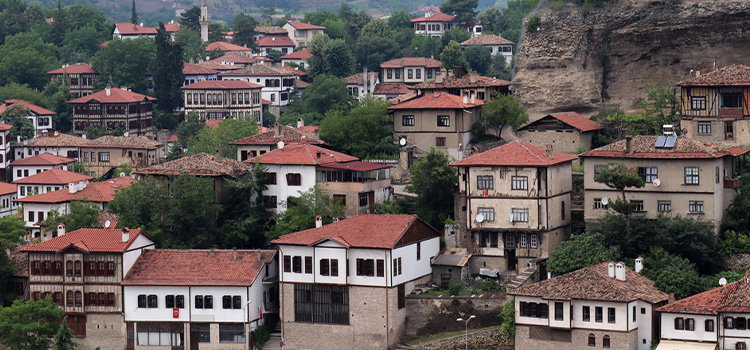
Turkey - 57.8%
In Turkey, just under 58% of people own their homes. It's a cultural thing to own property there. Things like government assistance, more people moving to cities, and easier ways to get home loans have boosted homeownership rates.
But sometimes the economy isn't stable and interest rates are high, which makes it tough, especially for younger folks buying for the first time. Owning a home is still a big dream for many in Turkey as many hope for continued government support in accomplishing their housing goals.
South Korea - 56.2%
In South Korea, cities like Seoul have seen a big boom in real estate, and this has recently pushed up home prices. Which makes it hard for many to buy property. Overall, the homeownership in South Korea is around 56.2%. The government is trying to stop prices from rising too fast and ensure there are enough homes for sale for everyone.
Owning a home is a big deal in South Korea and shows you've done well. As the country grows richer, finding a balance between making homes affordable and keeping this cultural dream alive is key.
South Africa - 53%
Poor policy decisions in the past made it hard for many to own property in South Africa. Since then, the government has been trying to help by offering more affordable housing, but there are still issues like disputes over land rights and people living in informal places. The move to cities and money problems have added to the challenges.
But owning a home still means a lot to South Africans as it is a sign of stability and moving up in the world, and shows they're moving past a challenging history. There's still work to do to make sure everyone has a fair shot at owning a home in the country, however.
Germany - 49.1%
In Germany, homeownership is valued but less common than in some other countries. Owning a home is seen as a stable investment and a way to secure one's future. While many may rent, those who choose to buy a home in Germany view it as a long-term commitment and a sign of financial success. The idea is that owning property can provide a sense of security, especially during uncertain times. So, for Germans, having a home is about both financial planning and peace of mind.
Methodology and Conclusion
In our research, we focused on countries around the world that not only had a high homeownership rate but also ranked high on the list in population. It's clear that owning real estate is very important to people of all ages worldwide. While every country has its unique challenges, those with high homeownership have found ways to make it work. Looking at this list helps us understand that many of us have a common dream of owning a home, and all the different ways to achieve it.
Posted by Nathan Garrett on
Leave A Comment